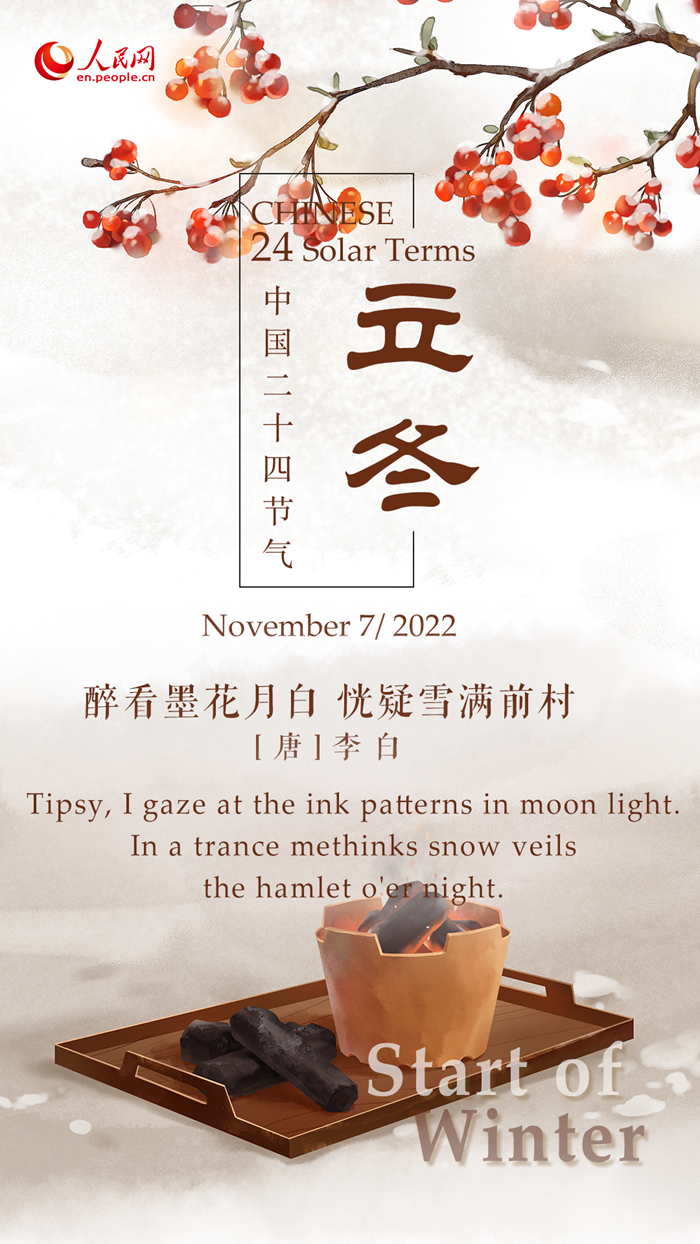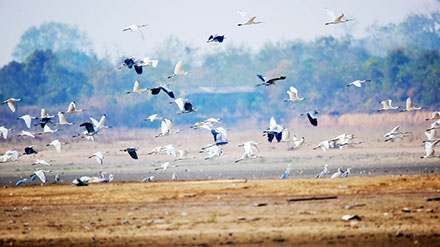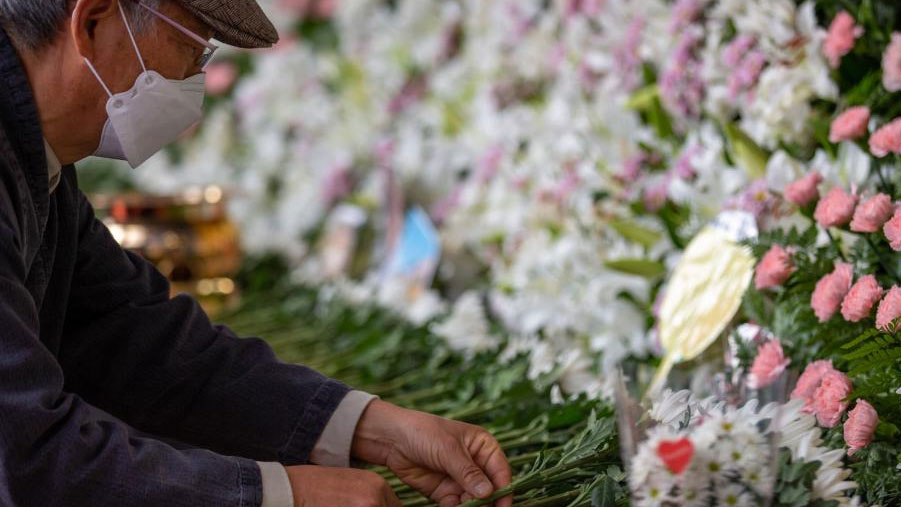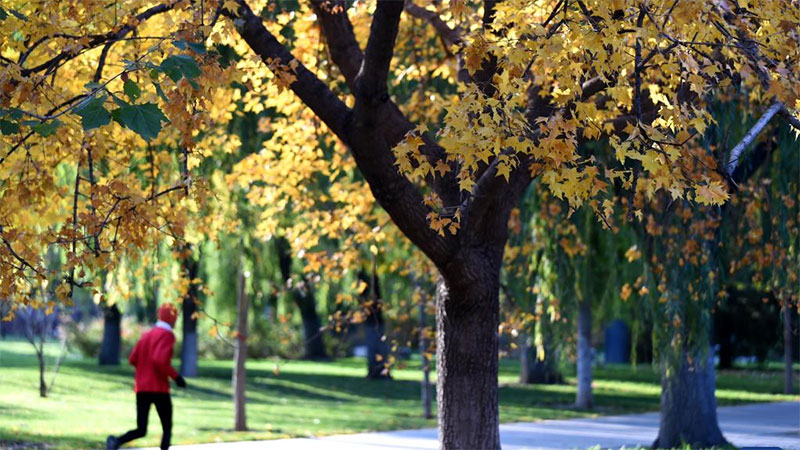Calendar for Chinese 24 Solar Terms: Start of Winter
The Start of Winter, or "Lidong" in Chinese, falls on November 7 this year. It is the first solar term of winter, which means winter is coming and crops harvested in autumn should be stored up.
Here are things you should know about the Start of Winter.
Welcoming winter
In ancient times, people celebrated festivals at the beginning of every season. On the Start of Winter, the emperor would lead his officials to the suburbs and perform a ceremony to "welcome the winter."
Eating dumplings
It is said that at the end of the Eastern Han Dynasty (AD25-220), Zhang Zhongjing, who is known as the "Medical Saint", invented a food during the Start of Winter to dispel coldness and increase body heat. This food is what we call "dumplings" today. There is still a saying in China: "Eat dumplings on the Start of Winter, or your ears will be frostbitten."
"Nourishing the winter"
On the first day of the Start of Winter, there is a custom, "nourishing the winter," in Southeast China. To prepare for the oncoming cold winter, people there like to eat high-calorie foods such as chicken, beef, mutton and fish, which are usually stewed with four Chinese herbs, namely, angelica, ligusticum wallichii, Chinese herbaceous peony and rehmannia glutinosa libosch, to enhance nourishment.
Eating Chinese pumpkin
On the first day of the Start of Winter, people in Tianjin like to eat Chinese pumpkins, or "wo gua" in Chinese, which is a common vegetable in Northern China.
Eating tuanzi in Wuxi
On the first day of the Start of Winter, people in Wuxi have a custom of eating tuanzi, a traditional Chinese dish made with rice. On that day, the newly-harvested crops have just been sold on the market, which people use to make tuanzi. Mostrural residents make tuanzi by themselves, while urban residents buy it ready-made. Sweet bean paste, radish or lard can be stuffed inside the tuanzi.
Winter Swimming
In Harbin, to celebrate winter's coming, athletes in Heilongjiang Winter Swimming Association will swim across the Songhua River. Nowadays, winter swimming becomes popular in Shangqiu, Henan Province, Yichun, Jiangxi Province and Wuhan, Hubei Province.

Related:
Calendar for Chinese 24 Solar Terms: Frost's Descent
Calendar for Chinese 24 Solar Terms: Cold Dew
Calendar for Chinese 24 Solar Terms: Autumn Equinox
Calendar for Chinese 24 Solar Terms: White Dew
Calendar for Chinese 24 Solar Terms: End of Heat
Calendar for Chinese 24 Solar Terms: Start of Autumn
Calendar for Chinese 24 Solar Terms: Major Heat
Calendar for Chinese 24 Solar Terms: Minor Heat
Calendar for Chinese 24 Solar Terms: Summer Solstice
Calendar for Chinese 24 Solar Terms: Grain in Ear
Calendar for Chinese 24 Solar Terms: Grain Buds
Calendar for Chinese 24 Solar Terms: Start of Summer
Calendar for Chinese 24 Solar Terms: Grain Rain
Calendar for Chinese 24 Solar Terms: Qingming
Calendar for Chinese 24 Solar Terms: Spring Equinox
Calendar for Chinese 24 Solar Terms: Awakening of Insects
Photos
Related Stories
Copyright © 2022 People's Daily Online. All Rights Reserved.









